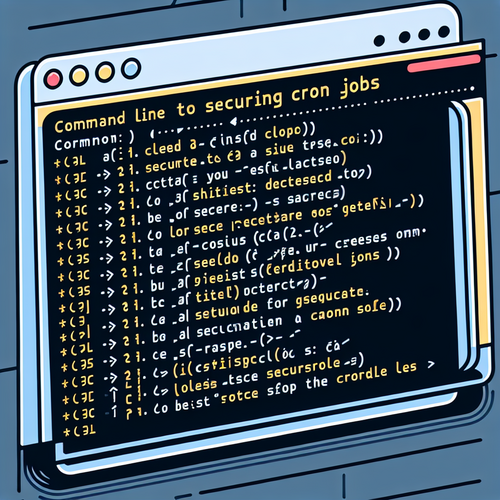
{{ $('Map tags to IDs').item.json.title }}
How to Secure cron Jobs
Securing cron jobs is vital for protecting your Linux system from unauthorized access and ensuring that scheduled tasks execute safely. This tutorial provides best practices and techniques to enhance the security of your cron jobs effectively.
1. Understanding cron Jobs
cron is a time-based job scheduler in Unix-like operating systems that allows users to run scripts or commands at specified intervals. Though convenient, unsecured cron jobs can be exploited if not properly managed.
2. User Permissions and Ownership
The first step in securing cron jobs is to review user permissions. Only trusted users should have access to create or modify cron jobs:
To list the current user’s cron jobs, run:
crontab -lFor system-wide cron jobs, check:
cat /etc/crontabEnsure that individuals who do not require cron access do not have entries in the crontab.
3. Limiting Access to cron directories
The cron directories such as /etc/cron.d/ and /etc/cron.daily/ should have restricted permissions. Check and set proper permissions:
sudo chmod 750 /etc/cron.dThis command allows only the root and allowed users to read and execute files in the cron directories.
4. Using Environment Variables
Be cautious with sensitive information in cron jobs. Consider using environment variables to avoid hardcoding passwords or secret keys directly in scripts. Add environment variables at the top of the crontab file:
MAILTO=""
EXPORT VAR_NAME="value"5. Logging and Monitoring
To effectively monitor cron job activity, configure logging to capture outputs and errors. Redirect output from cron jobs to log files:
* * * * * /path/to/script.sh >> /var/log/cron.log 2>&1This appends both standard output and errors to cron.log.
6. Testing cron Jobs Securely
Before scheduling a cron job, test it manually in a safe environment to ensure it does not create vulnerabilities. Review logs to confirm it behaves as expected.
7. Keeping Software Up-to-Date
Regularly update your system and any applications associated with cron jobs. Security patches for vulnerabilities reduce the risk of breaches:
sudo apt update
sudo apt upgrade8. Conclusion
By following this tutorial, you have learned how to secure cron jobs effectively in Linux. Properly managing access, monitoring logs, and using environment variables are essential practices for maintaining the security of scheduled tasks. Continue to explore further security enhancements and best practices to optimize your server’s resilience!













